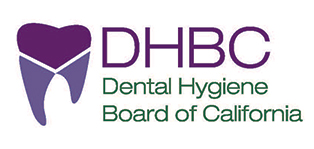Definitions of Enforcement Terminology
Accusation: A formal, written statement of charges.
Complaint: A communication alleging a violation of the Dental Hygienist Act.
Fraud (violation): Intentional acts of misrepresentation, misleading advertising, substitution of goods/services, fraudulent billing, or unfair business practices.
Unprofessional Conduct (violation): Unethical business practices (client abandonment, failure to release/return records, or breach of confidentiality).
Negligence/Incompetence (violation): In attention to one's duty, malpractice, a departure from the professional standards of practice, quality of care issues, inadequate skills, or lack of knowledge.
Gross negligence (violation): Extreme inattention to one's duty, malpractice, departure from the professional standards of practice, quality of care issues, inadequate skills, or lack of knowledge.
Health & Safety (violation): Improper use of a toxic or hazardous substance, prescription abuses, sanitation deficiencies, and sale of dangerous substances or products.
Personal Conduct: Drug/alcohol abuse, moral turpitude, mental illness, or conviction of a crime (regardless of the nature of the crime).
Non-Jurisdictional: Issues not specifically covered by statute (fee disputes, discourtesy, referrals to other agencies, etc.).
Investigation (Informal): Complaints investigated in-house, by a non-sworn Board staff member, to determine if a violation of law has occurred.
Investigation (Formal): Complaints referred investigators to determine if violations of the law have occurred.
Revoked: The invalidation of an individual's license to practice a profession as a result of an administrative or disciplinary action.
Revoked – Default: After valid service of an Accusation (formal charges), the licensee fails to file the required response or fails to appear at the hearing. The license is forfeited through inaction.
Revoked, stayed, 5 years probation with terms and conditions, including 60 days suspension: Stayed means the revocation is postponed, put off. Professional practice may continue as long as the licensee complies with specified probationary terms and conditions, which, in this example, includes 60 days actual suspension from practice. Violation of probation may result in the revocation that was postponed.
Suspension: A decision resulting from a disciplinary action whereby the right to practice a profession is temporarily discontinued or withdrawn.
Temporary Restraining Order (TRO): A TRO is issued by a Superior Court Judge to halt practice immediately. When issued by an Administrative Law Judge, it is called an Interim Suspension Order (ISO).
Probationary Terms and Conditions: Examples: Take and pass clinical examination. Complete a Dental Board approved Law and Ethics course or other approved educational courses. Undergo a psychological evaluation and/or therapy. Provide free services to an Dental Board approved community facility. Abstain from alcohol and/or drugs.
Stipulated Decision: A form of plea bargaining. The case is negotiated and settled prior to trial.
Surrender: Resignation under a cloud. While charges are pending, the licensee turns in the license, subject to acceptance by the Dental Board.
Probationary License: A conditional license issued to an applicant on probationary terms and conditions. This is done when good cause exists for denial of the license application.
Effective date of Decision: Example: "February 4, 1998" at the bottom of a summary means the date the disciplinary decision goes into operation.
Judicial Review recently completed: The disciplinary decision was challenged through the court system-Superior Court, Court of Appeal, or State Supreme Court, and the discipline was upheld. This notion explains, for example, why a case effective "February 4, 1994" is reported for the first time four years later in 1998.
Public Letter of Reprimand: A reprimand of a licensee that is a matter of public record for conduct in violation of the law.


